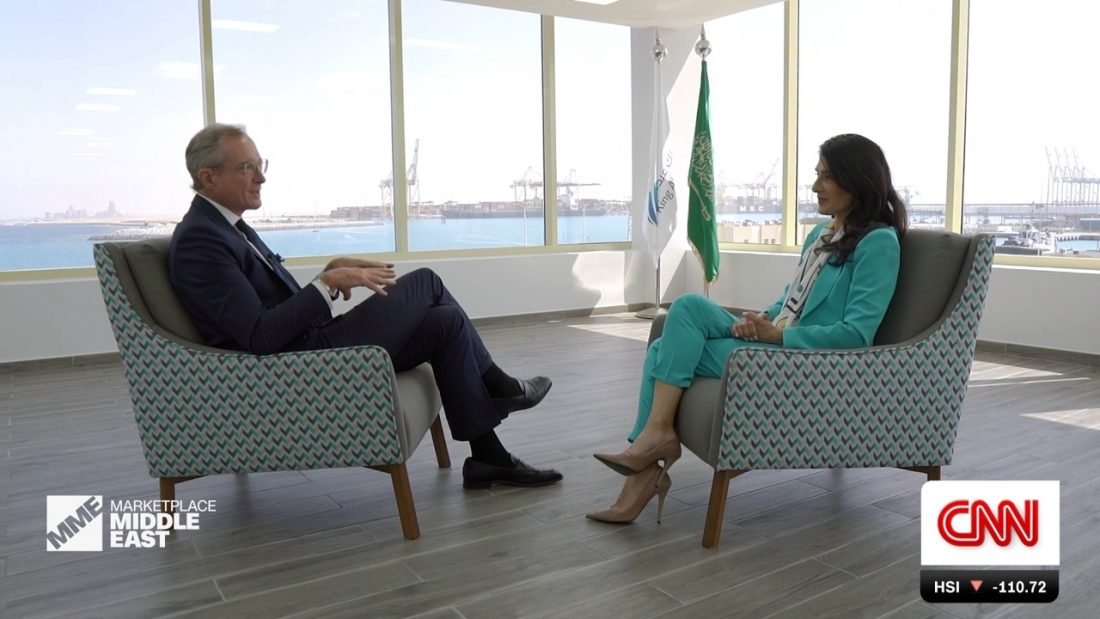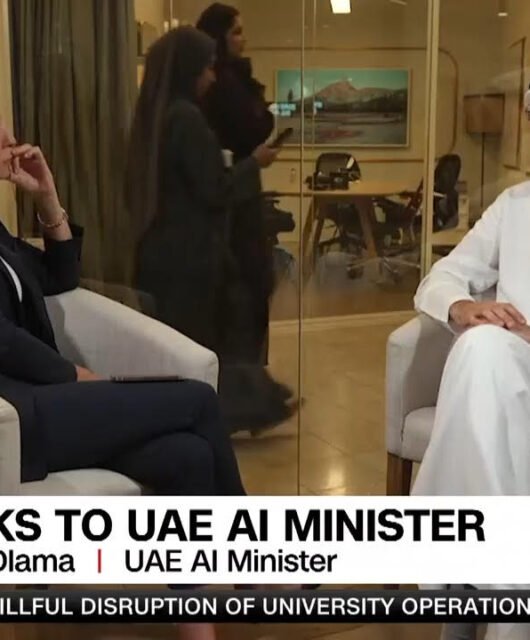CNN Explores Saudi Arabia’s Shipping Industry
In the latest episode of Marketplace Middle East, CNN’s Eleni Giokos explores Saudi Arabia’s shipping industry and sees how a research project is aiming to reduce sulfur emissions in marine transportation.
According to the International Maritime Organisation (IMO), shipping accounts for 3% of global greenhouse emissions. In 2020, the IMO introduced a rule that limits the amount of sulfur in marine oil. To help meet these green goals, the King Abdullah University of Science and Technology (KAUST) is working to create clean and sustainable fuel for shipping.

Professor William Roberts, Director of Clean Combustion Research Center KAUST, explains, “We are working on a process to remove sulfur from heavy fuel for marine transport. So, the objective is to be able to get down to this IMO 2020 regulation that puts a cap on sulfur emissions. So, you can either pull it out of the exhaust, or pull it out of the fuel.”
Professor Roberts says that the aim is to remove sulfur instead of using scrubbers. Scrubbers are a cleaning system placed on ships to remove the polluting sulfur oxide from the ships exhaust. Roberts talks about the success of the system, “The high sulfur fuel level is about 3.5%. And we can get it to less than 0.5%, and this is the IMO regulation.”
Like many heavy industries, shipping is navigating its way through an energy transition and Professor Roberts says fossil fuels will still have a part to play, at least for some time, “There are 55,000 ships right now, on the ocean. 800 of them are liquified natural gas. So, the infrastructure is enormous. You’re not going to be able to replace. Because that’s at a tremendous cost. And energy benefits. So, you’re much better off modifying what you have than trying to replace it completely.”
He continues, “Combustion is essential. It will be a major part of the solution. We’ve got trillions of dollars in infrastructure, in engines, in turbines, in power generation, in the transportation sector, and we need to change the fuel or change how we clean up the exhaust. We are not going to be able to replicate all this infrastructure in the next three decades.”
Giokos also speaks to Jay New, CEO of the King Abdullah Port about what makes the port one of the most efficient in the world.





